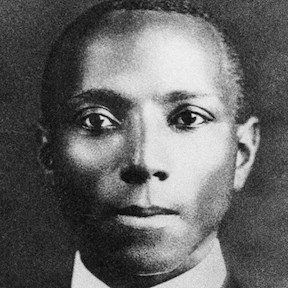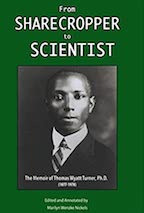 Cornell University in Ithaca, New York, has created the Thomas Wyatt Turner Fellowship, which aims to increase the number of graduate students from historically underrepresented backgrounds doing research in inclusive and sustainable agricultural development.
Cornell University in Ithaca, New York, has created the Thomas Wyatt Turner Fellowship, which aims to increase the number of graduate students from historically underrepresented backgrounds doing research in inclusive and sustainable agricultural development.
Thomas Wyatt Turner was the son of formerly enslaved sharecroppers. At the age of 18, he walked 50 miles from his Maryland home to start his undergraduate career at Howard University.
He received a bachelor’s degree in 1901 and a master’s degree in 1905 from Howard University. Upon graduation, Turner taught at the Tuskegee Institute and several public schools in Baltimore, Maryland. He eventually became a professor of botany at Howard University. At Howard, he served as the founding head of the department of botany and acting dean of Howard’s School of Education.
 In 1921, Turner was awarded a Ph.D. in botany at Cornell University with his thesis entitled “The physiological effects of salts in altering the ratio of top to root growth.” He was the first Black person at Cornell to earn a doctorate and the first Black person in the nation to earn a doctorate in botany.
In 1921, Turner was awarded a Ph.D. in botany at Cornell University with his thesis entitled “The physiological effects of salts in altering the ratio of top to root growth.” He was the first Black person at Cornell to earn a doctorate and the first Black person in the nation to earn a doctorate in botany.
Dr. Turner served as professor of botany and department head at the Hampton Institute for over 20 years before retiring n 1945 due to glaucoma. His life story is told in From Sharecropper to Scientist: The Memoir of Thomas Wyatt Turner, Ph.D., 18177-1978.
The Thomas Wyatt Turner Fellowship will support up to 10 graduate students from 1890 institutions, which are historically Black colleges and universities that are land-grant universities. The target audience will be current master’s or Ph.D. students who are currently pursuing graduate degrees in fields related to inclusive and sustainable agricultural development — from plant sciences and nutrition to climate resilience and beyond.
Fellows will be placed in research teams/labs at Cornell University and work closely with peers throughout their fellowship. Fellows’ home institution advisors will be directly engaged as well, creating linkages to both support Fellows’ success, and create enhanced and lasting linkages between the 1890 institutions and Cornell University faculty and research programs. Fellows will be at Cornell from August 2022 through May 2023.
The Turner Fellowship is funded in part by a grant from the U.S. Agency for International Development, with additional support from the Cornell Graduate School and School of Integrative Plant Science.












Thank you for helping share the program we’re starting up at Cornell! We’re looking forward to announcing our first cohort shortly, and welcoming the students to Ithaca in August. As there was no link to the fellowship itself in the article, anyone who is interested in learning more can do so here: https://ilci.cornell.edu/turner-fellowship/
The TWT Fellowship represents a significant commitment from the United States Agency for International Development (USAID) to strengthen the career pipeline for students from 1890 institutions to enter careers in agricultural development overseas. The fellowship is being implemented in collaboration with the Innovation Lab for Crop Improvement (ILCI), a USAID-funded and Cornell-based program aimed at strengthening national agricultural research programs in target countries throughout Sub-Saharan Africa, Latin America and the Caribbean, with a focus on holistic, interdisciplinary crop improvement. TWT Fellows will gain direct exposure to USAID-funded research and cutting edge agricultural development work through their participation in the program.